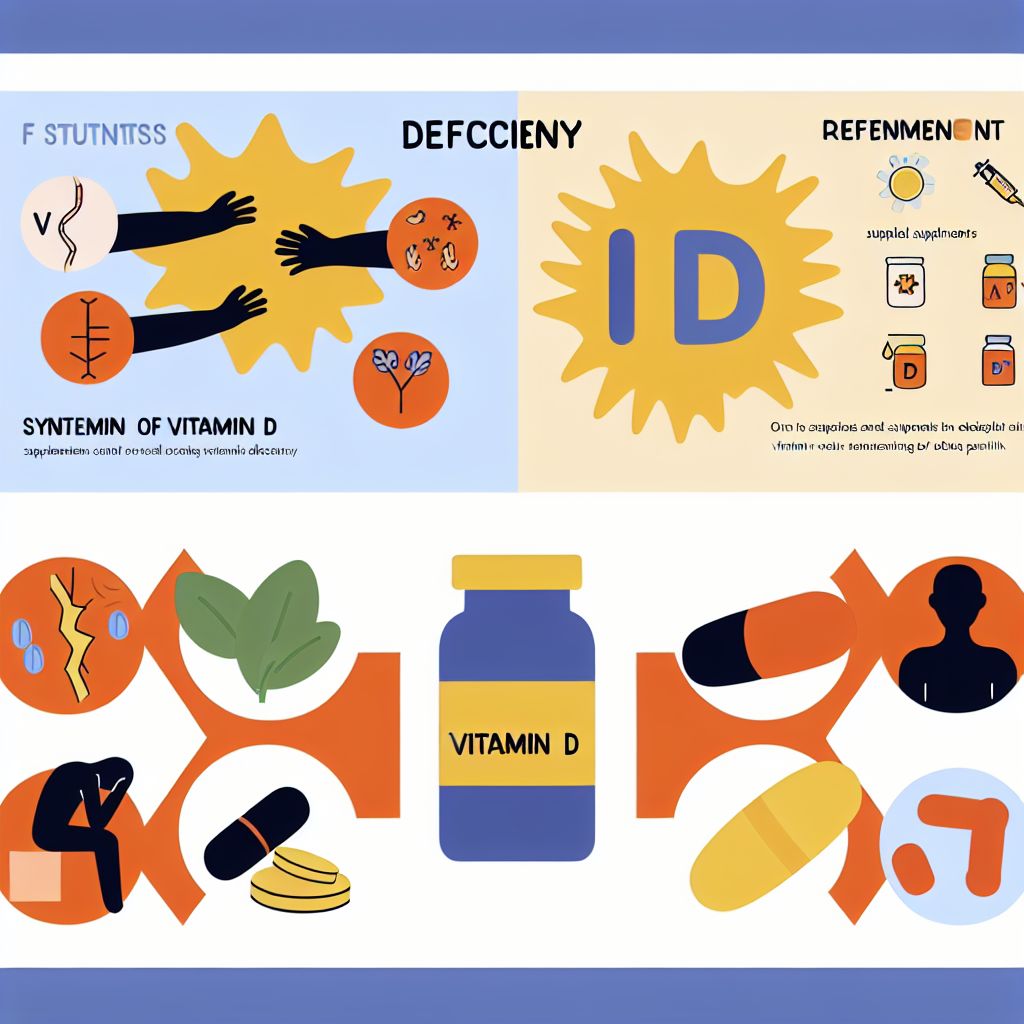Vitamin D is a critical nutrient that supports overall health, yet many people unknowingly face its deficiency. From unexplained fatigue to aching bones or shifts in mood, the signs are often subtle but impactful. Known as the “sunshine vitamin,” Vitamin D is essential for strong bones, a healthy immune system, and even mental wellness. When deficiency goes unaddressed, it can lead to serious complications.
In this article, you’ll discover the symptoms, causes, and solutions for Vitamin D deficiency. By understanding and recognizing the signs, you can take proactive steps to protect your health and vitality.
Why Is Vitamin D Essential for Your Health?
Vitamin D is far more than just another nutrient; it’s a foundational element for a variety of bodily functions. One of its main responsibilities is helping your body absorb calcium and phosphorus. These minerals are vital for strong bones and teeth, and without enough Vitamin D, your skeletal system may weaken over time.
Beyond bone health, Vitamin D supports your immune system, helping fend off infections and reduce inflammation. It’s also involved in modulating your mood. Feeling sluggish or down during long winter months? Low Vitamin D levels could be the culprit.
Natural Sources of Vitamin D
Your body naturally produces Vitamin D when exposed to sunlight. Even a few minutes of direct sun daily can kickstart production. Additionally, foods like salmon, tuna, egg yolks, and Vitamin D-fortified cereals can help you maintain healthy levels. However, many struggle to get enough through diet or sunlight alone, which is why supplementation becomes necessary for some people.
What Causes Vitamin D Deficiency?
Vitamin D deficiency can result from everyday factors or underlying health conditions. Understanding its causes is key to reversing its effects and protecting your well-being.
Common Causes
- Limited Sun Exposure: If you spend most of your time indoors, live in areas with poorly lit winters, or frequently use sunscreen, your body may not produce enough Vitamin D.
- Poor Diet: Dietary choices that exclude Vitamin D-rich foods, such as fatty fish, fortified dairy, or egg yolks, may contribute to insufficient levels.
- Underlying Health Conditions: Conditions like Crohn’s disease or celiac disease affect how your body absorbs Vitamin D, reducing its effectiveness.
- Aging: As you grow older, your skin and metabolism become less efficient in producing Vitamin D, making supplementation crucial for older adults.
- Obesity: Excess fat can store Vitamin D, preventing it from circulating properly through the bloodstream.
Can You Recognize the Symptoms of Vitamin D Deficiency?
Vitamin D deficiency has a wide range of symptoms, making it tricky to pinpoint. It often mimics unrelated issues, but catching these subtle warning signs early can save you from more severe complications.
Common Symptoms of Vitamin D Deficiency
- Fatigue: Persistent tiredness, even after a good night’s sleep, could be linked to low Vitamin D levels.
- Bone Pain or Achiness: Aching joints or back pain might signal that your bones lack adequate calcium absorption due to Vitamin D deficiency.
- Muscle Weakness or Cramping: Poor physical performance or unexpected cramps can arise when muscles don’t receive enough Vitamin D.
- Mood Changes: Feelings of irritability, depression, or prolonged “winter blues” can often be traced back to low levels of Vitamin D.
- Hair Loss: While commonly attributed to stress, significant hair shedding can indicate a Vitamin D shortage in the body.
- Frequent Illness: A weakened immune system causes vulnerability to repeated colds or infections, which may stem from inadequate Vitamin D levels.
What Are the Risks of Ignoring Vitamin D Deficiency?
If left untreated, Vitamin D deficiency can result in serious health problems. While mild symptoms may seem manageable, prolonged deficiency increases the risk of chronic ailments.
Health Risks of Prolonged Deficiency
- Osteoporosis: Low Vitamin D levels prevent proper calcium absorption, leading to brittle bones and heightened fracture risk.
- Cardiovascular Problems: Deficiency has been linked to issues like high blood pressure and increased risk of heart disease.
- Chronic Illness: Research connects low Vitamin D levels to diseases like diabetes, certain cancers, and autoimmune disorders such as rheumatoid arthritis.
- Impaired Immunity: Vitamin D deficiency can weaken your immune defenses, increasing susceptibility to infections and prolonged recovery times.
How Can You Treat and Prevent Vitamin D Deficiency?
The best way to address Vitamin D deficiency is through a combination of lifestyle changes, dietary adjustments, and supplementation—depending on your individual needs.
Steps to Boost Vitamin D Levels
- Get Some Sunlight: Aim for 15–20 minutes of direct sun exposure a few days a week. Activities like walking or gardening outdoors can increase your Vitamin D naturally.
- Eat Vitamin D-Rich Foods: Incorporate options like salmon, mackerel, fortified dairy, egg yolks, and UV-exposed mushrooms into your weekly diet.
- Take Supplements: If sunlight or dietary sources aren’t cutting it, Vitamin D3 supplements can quickly restore your levels. Speak with your healthcare provider about appropriate doses.
- Exercise Outdoors: Not only does physical activity strengthen your muscles and bones, but exercising outdoors exposes you to sunlight, boosting Vitamin D naturally.
Take the First Steps Toward Better Health
Vitamin D deficiency is common, but it doesn’t have to hurt your quality of life. Recognizing the signs and taking proactive action—whether it’s through more sunlight, better nutrition, or supplements—can make all the difference.
If you suspect low Vitamin D levels, consult your doctor. A simple blood test can confirm the deficiency, helping you address the issue before health risks snowball into something serious. Your body works hard for you—give it the Vitamin D it needs to thrive!
